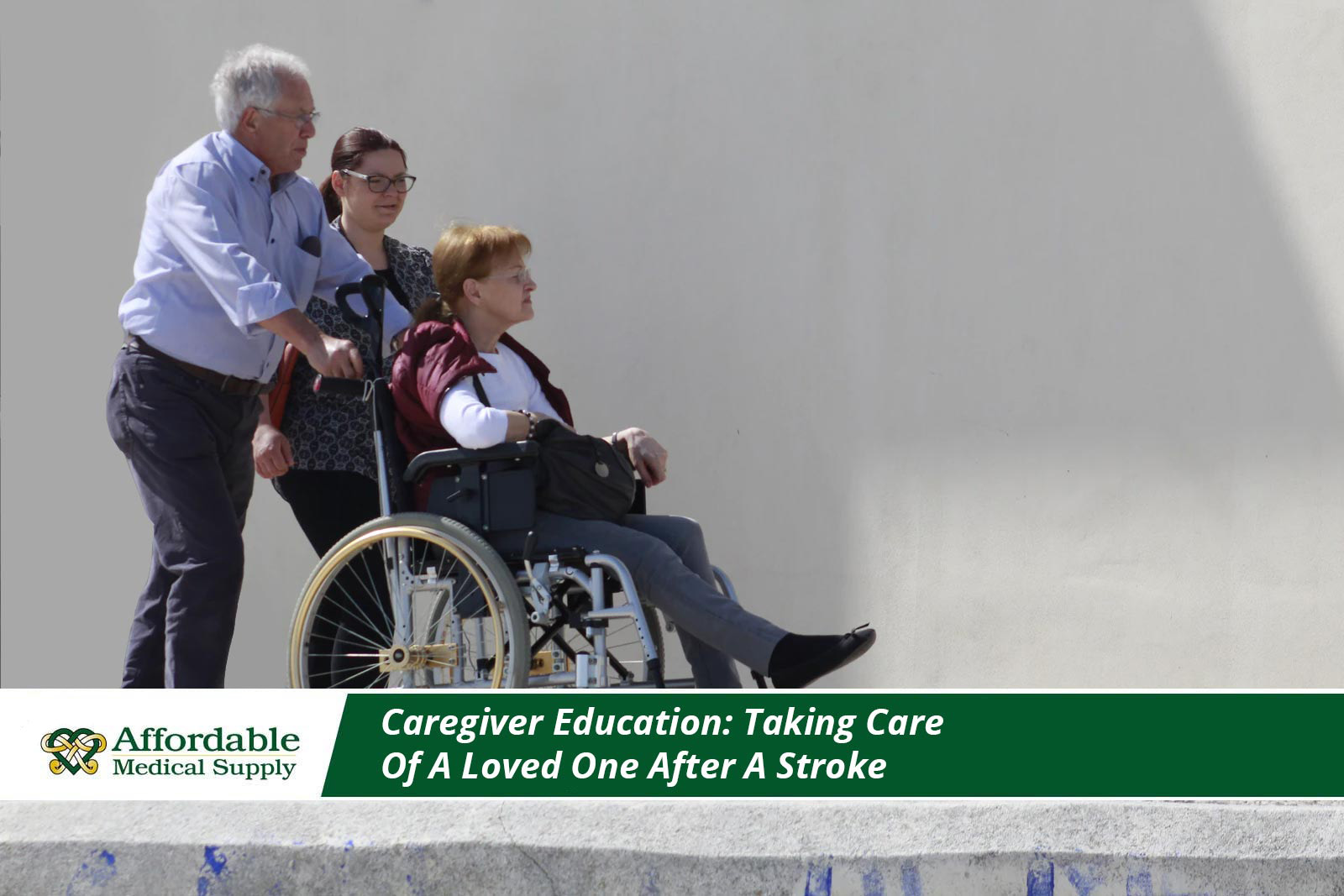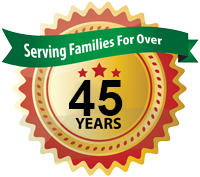Caregiver Education: Taking Care Of A Loved One After A Stroke

Caring for a stroke survivor, especially for the first time, comes with unique challenges and lifestyle changes that not everyone understands. At Affordable Medical Supply, we believe it’s important to know as much about these changes as possible so that your loved one receives the best quality care for the months and years ahead. Caregiver education is important as it helps you understand what to expect as well as the proper way to care for your loved one.
The First Steps
In the weeks following a stroke, you have a lot to learn. Here are four steps which we find most important and beneficial for stroke patient caregivers:
1. Educate Yourself
Lack of knowledge surrounding strokes is one of the biggest challenges that caregivers face – the more you know, the better your ability to care for your loved one. Undoubtedly, there is a lot to learn before you can look after a stroke survivor. Take advantage of every opportunity to learn about strokes and how they affect your loved one. Talk to health care professionals about what recovery looks like, how rehabilitation will work, and what specialized equipment you may need to get.
2. Find Out About Insurance Coverage
While most health insurance companies will cover the majority of hospitalization and rehabilitation costs, there can be restrictions on which providers or facilities are covered. Look into exactly what is covered and what you may have to pay out-of-pocket. Also be aware that coverage may change as your loved one gains back abilities or stops progressing.
3. Take Part In Stroke Rehabilitation
Encourage your loved one to make progress and practice new skills, but don’t help them right away. Rather take on a supportive role and give them the chance to do things for themselves. Even the smallest of accomplishments can help your loved one feel confident in their recovery.
4. Assess Your Loved One’s Needs, And Then Your Ability To Meet Them
Your loved one’s needs have changed drastically from what they were previously, and it’s important to be aware of them. Get the stroke survivor’s healthcare team to help you figure out what level of help will be required. As a caregiver, you may need to:
- Assist or provide personal care (bathing, dressing, etc)
- Assist in or entirely manage finances and insurance
- Manage healthcare needs (medications, doctor’s appointments, rehabilitation appointments, etc)
- Help your loved one maintain and increase their ability to function
Be realistic with yourself. You can’t do everything – so what can you take on? What will you need help with? How much time do you have? Can you team up with another family member to lessen the care-load?
Practical Tips For Caregivers
The reality of the stroke may only begin to sink in after your loved one leaves the hospital. Arm yourself with the knowledge gained from those who’ve been exactly where you are and have learned from experience. Investigate what medical equipment you can get to help you adapt to this lifestyle change.
As you take on your new role as caregiver, here are some things to be aware of, to do, and to consider:
Home Modification
Your home may need a few changes before it’s safe for your loved one. You may need to move the bedroom to the first floor, remove throw rugs to try to prevent falls, or put seats and grab bars in the shower and bathroom.
Reducing Risks
Survivors are at high risk of having a second stroke. Reducing the risks of another stroke is therefore highly important. You can do this by ensuring they eat healthy, take medications, visit their doctor regularly, make your home smoke-free, and exercise as much as recommended by a healthcare professional. Affordable Medical Supply provides in-home assessments for you to determine what sections of your home will not be suitable for a stroke survivor to live in.
Managing Their Medical Needs
You are now responsible for the medical needs of your loved one, which includes ensuring they take any chronic medication they were previously taking, as well as any new medications associated with the stroke. As their primary caregiver, you have the right to access their medical and rehabilitation records, which includes any written notes as well as brain imaging files.
Physical Therapy
You can consider assistance from a physical or occupational therapist if your loved one is experiencing:
- Dizziness
- Imbalance resulting in falls
- Difficulty walking or moving around
- Inability to walk for six minutes without needing to stop and rest
- Inability to take part in or to complete daily activities
Measure Progress
The amount of acute rehabilitation therapy that your loved one receives partially depends on their improvement rate. Survivors are expected to make measurable functional gains every week. These include daily, mobility, and communication skills, and are measured using the Functional Independence Measure Score (FIMS). The most rapid progress is typically within the first three to four months, but some patients continue to recover for one or two years.
Don’t Ignore Falls
It is quite common to experience falls after surviving a stroke. Take your loved one to the emergency room if a fall is serious and results in major pain, bruising, or bleeding. Minor falls that occur more frequently than two times in six months warrant attention from either a physician or a physical therapist.
Seek Support
There is a worldwide community of other stroke survivors and their caregivers. Take advantage of community resources and support groups that are available to you and to your loved one. You don’t have to figure this out on your own.
Take Care Of Yourself Too
Learn to say “yes” when offered help. Whether it is grocery shopping, housework, or managing finances, every bit of help is invaluable and worth accepting. Take breaks if you need to take them, ask for help when you are overwhelmed, and make sure you are resting enough. Finding the balance between your life and your loved one’s needs makes all the difference!
Caring For Stroke Survivors With Affordable Medical Supply
Being a caregiver can be an overwhelming task, and Affordable Medical Supply is here to make it easier for you. We not only provide equipment to make your home more suited to your loved one’s needs, but in-home safety assessments to ensure that aging in place is a viable and comfortable option. Contact us today at 866-484-7599 to schedule a private consultation to assess your needs and offer advice.



